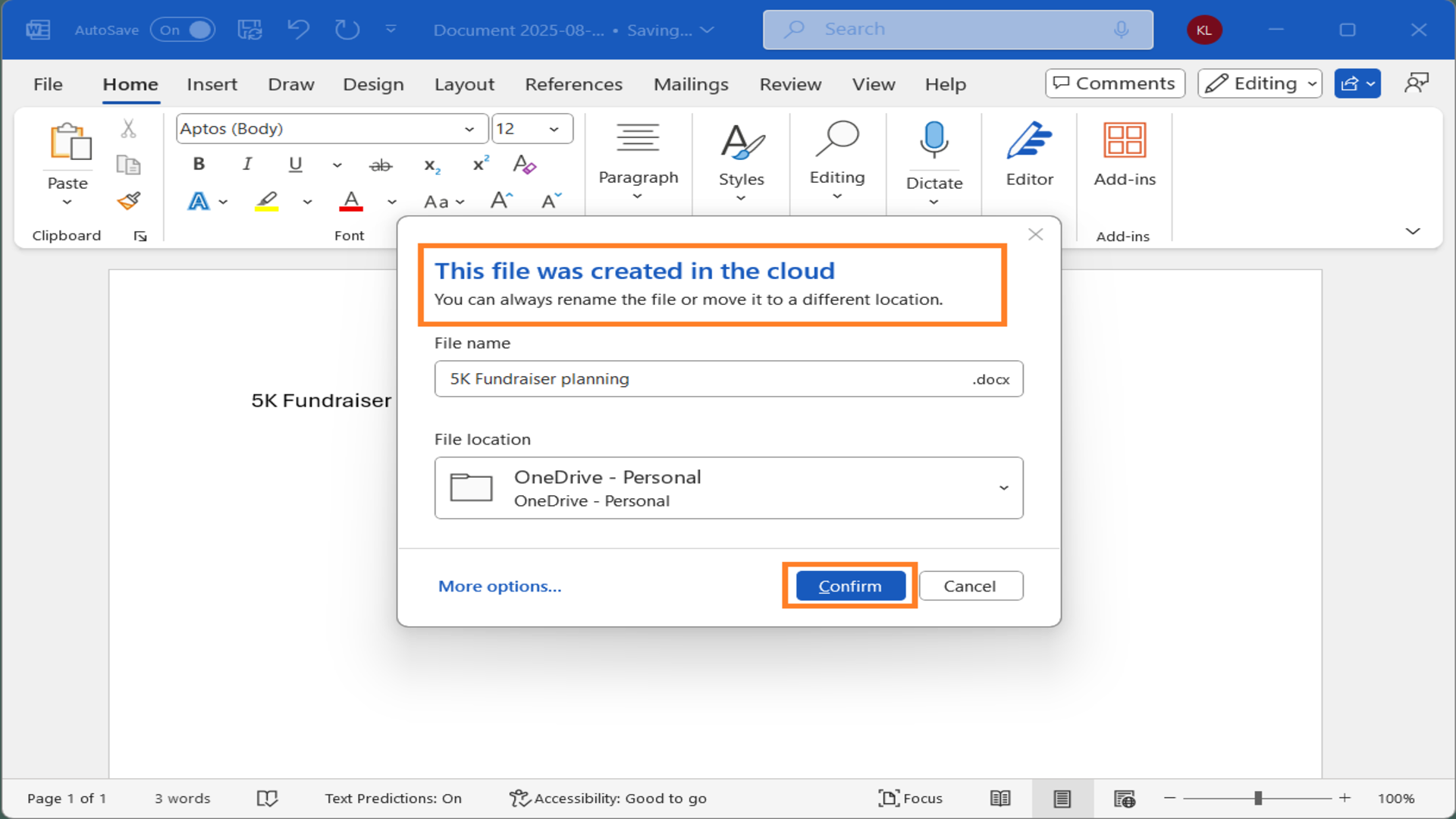Microsoft Word finally gets a feature Google Docs users have enjoyed for years - but I'm not sure it's a good idea
Microsoft faces criticism for excluding decentralized cloud storage systems

- Microsoft Word now saves new documents in the cloud by default
- Users no longer need to manually save before AutoSave works
- Some insider builds lack the feature, and new glitches prevent cloud saving if multiple sessions of Word are open
Microsoft has quietly introduced a default cloud saving feature in Word for Windows, a change which alters how new files are handled.
For years, users of Google Docs and Microsoft Word Online (the cloud version) have enjoyed automatic storage in the cloud from the moment a document is created.
Now Microsoft Word, one of the world’s most widely used word processors, is moving closer to that model, announcing that by default, new files are now automatically stored online with a date-stamped name, unless users actively choose a different location or title.
How it works and what's different
Previously, Microsoft Word required a manual save before the AutoSave switch became active, leaving documents vulnerable to crashes or user oversight.
The new option, labeled "Create new files in the cloud automatically," is enabled in the Save tab by default.
This means users will not need to take the first step of saving a document manually, as it will already exist in their chosen cloud folder.
The integration also extends to Microsoft’s Copilot, which can access documents as soon as they are saved, provided the user has the necessary license.
Sign up to the TechRadar Pro newsletter to get all the top news, opinion, features and guidance your business needs to succeed!
Despite the promise of reliability, the feature is not without glitches. If a new session of Word is launched while another remains open, the new file may not be saved automatically.
Likewise, disabling the “Show the start screen” option prevents the first file from being stored in the cloud.
Some users in the Microsoft 365 Insider Beta channel report that the feature has not appeared even in builds where Microsoft claims it should.
The company said if users save anything new, it will automatically save to OneDrive, SharePoint, or any preferred cloud destination.
However, the company has been vague about what it means by a "preferred cloud destination."
Whether services offering free cloud storage or decentralized systems will be allowed remains to be seen.
Nextcloud’s leadership has already criticized Microsoft for bundling its own services and limiting alternatives.
"Microsoft is further pushing user data into its cloud, boosting its control and monetization opportunities. To placate regulators, it allows a few big competitors as alternatives, but excludes decentralized options such as Nextcloud," Frank Karlitschek, Nextcloud founder and CEO, told The Register.
On the surface, default cloud saving looks like a practical safeguard, especially for those who rely on large documents tied to a cloud database. However, the move also raises questions around privacy, compatibility, and market dominance.
You might also like
- We've rounded up the best free office software around
- Stay focused with our list of the best productivity software
- Our pick of the best document editing and management software around

Efosa has been writing about technology for over 7 years, initially driven by curiosity but now fueled by a strong passion for the field. He holds both a Master's and a PhD in sciences, which provided him with a solid foundation in analytical thinking.
You must confirm your public display name before commenting
Please logout and then login again, you will then be prompted to enter your display name.